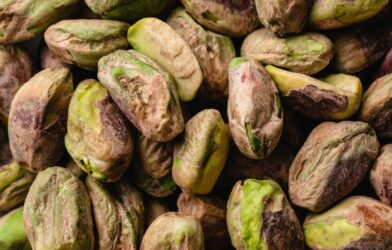Ever wondered why a night of too much drinking leaves your stomach feeling off, beyond just a hangover? It turns out, that uneasy sensation might be your body reacting to some serious internal upheaval. A new study has uncovered a surprising reason why binge drinking can wreak havoc on your gut, leading to a condition often called “leaky gut.” Even more remarkably, the research points to a potential new way to protect your digestive system from this damage.
Think of your gut lining as a very fine-mesh filter, designed to let essential nutrients pass through while keeping out unwanted bacteria and toxins. Binge drinking – which means consuming enough alcohol to quickly raise your blood alcohol levels, typically around five or more drinks for men or four for women within a couple of hours – can poke holes in this filter. When your gut becomes “leaky,” harmful substances can slip into your bloodstream, triggering inflammation and potentially contributing to a range of health issues, including more serious digestive problems. Until now, exactly how alcohol caused this damage, and what could be done about it, remained a puzzle. This new research shines a bright light on a hidden player in this process: a natural system in your body involving something called the “cannabinoid receptor 1,” or CB1R. And the really exciting part? Blocking this receptor might just be the key to shielding your gut from the consequences of those heavy drinking sessions.
Unpacking the Gut’s Internal Battle
To fully appreciate this discovery, it helps to understand the role of what are called “endocannabinoids.” These are natural compounds your body produces, similar to chemicals found in cannabis. They interact with specific “receptors,” like the CB1R, which are found throughout your body, including extensively in your gut. This endocannabinoid system helps regulate many bodily functions, including how well your intestines act as a barrier.
The researchers, mostly from the National Institute on Alcohol Abuse and Alcoholism (NIAAA) at the National Institutes of Health (NIH), investigated how alcohol binges affect this delicate system in the gut. They observed that after a heavy drinking episode, the levels of a specific endocannabinoid called anandamide (AEA) sharply increased in the upper part of the small intestine. This surge in AEA then acts like a key, unlocking and activating the CB1R on the cells that line your intestine.
When CB1R is activated by alcohol, it kicks off a chain reaction inside these intestinal cells. This chain reaction ultimately weakens what scientists call “tight junction proteins.” Consider these proteins the “mortar” that holds the “bricks” (your gut cells) of your intestinal wall together, forming that crucial protective barrier. When this “mortar” loosens, gaps appear between the cells, creating those “leaks” that allow harmful substances to pass through. The study also found that alcohol could shorten the length of villi, which are tiny, finger-like projections in the small intestine vital for nutrient absorption. Shorter villi further compromise the gut barrier.
How Scientists Tracked Down the Culprit
To figure out the exact role of gut CB1R, the research team used a clever approach involving mice. They developed special mice where the CB1R was specifically removed only from the cells lining their intestines. This allowed them to pinpoint the effects of CB1R in the gut, without any influence from CB1R in other parts of the body, such as the brain (which plays a role in things like anxiety and appetite).
The study involved both male and female mice. For the alcohol part of the study, the mice were given a dose of ethanol equivalent to a human binge. It’s worth noting that mice process alcohol much faster than humans—about five to five and a half times quicker. To ensure the observed effects were due to alcohol, and not just extra calories, control groups received a sugar solution.
To check for “leaky gut,” the researchers used a common technique involving a fluorescent dye. This dye was given to the mice before the alcohol. In a healthy gut, this dye isn’t absorbed. So, if the dye showed up in the mice’s bloodstream, it indicated a “leaky gut,” and the amount of dye directly reflected the extent of the leakiness.
Beyond the genetic manipulation, the researchers also tested a specific drug called (S)-MRI-1891. This drug is a “peripheral CB1R blocker,” meaning it specifically targets and blocks CB1R in the body’s outer parts, like the gut, without affecting the brain. This was a crucial step, as it explored a potential treatment that wouldn’t have the mental side effects associated with older CB1R blockers that could affect the brain. The drug was given to the mice shortly before their alcohol dose.
Promising Findings: A Shield for Your Gut
The results were both clear and encouraging. When the researchers gave alcohol to normal mice, they saw a distinct increase in intestinal permeability—a classic sign of leaky gut. However, in the genetically modified mice that lacked gut CB1R, this alcohol-induced “leakiness” was significantly reduced. This compellingly demonstrates that gut CB1R is a key factor in how alcohol harms the intestinal barrier.
Even more exciting were the results with the drug (S)-MRI-1891. When normal mice received this peripheral CB1R blocker before their alcohol binge, their intestinal permeability was also significantly reduced. This protective effect was not seen in the mice whose gut CB1R was already genetically removed, which confirmed that the drug’s action was precisely due to blocking CB1R in the intestine. This finding opens a compelling new path for treatment.
The study further clarified that by targeting intestinal CB1R, whether through genetic removal or with the drug, they could reverse the negative impact on those critical “tight junction proteins.” They also observed an increase in the length of the villi in the intestines, which translates to an improved overall gut barrier.
It’s important to clarify what this study didn’t show. While successful in preventing leaky gut, disabling intestinal CB1R did not significantly impact other problems often linked to heavy drinking, such as metabolic issues or liver disease. This suggests that while a leaky gut is certainly part of the alcohol-related health puzzle, it’s not the sole factor, and other mechanisms are likely at play in the development of liver damage and metabolic dysfunction.
A New Hope for Digestive Health
This research marks a substantial step forward in our understanding of how alcohol, particularly binge drinking, impacts our digestive health. For years, the specific ways alcohol caused “leaky gut” remained unclear, limiting the development of effective treatments. By identifying gut CB1R as a critical player, scientists have opened the door to a new class of potential therapies.
While more research is needed, especially human clinical trials, the prospect of a targeted drug that can protect the gut from alcohol’s damaging effects without affecting the brain is incredibly hopeful. This could lead to a valuable new treatment option for the many individuals who suffer from alcohol-associated gastrointestinal diseases. It strongly reinforces that the consequences of alcohol misuse go far beyond the obvious, reaching deep into the very core of our body’s internal well-being.
Paper Summary
Methodology
The study utilized genetically modified mice with intestinal epithelial-specific cannabinoid receptor 1 (CB1R) deletion to investigate its role in alcohol binge-induced intestinal permeability. An acute oral ethanol dose (5 g/kg) was given to mice, with control groups receiving maltose. Intestinal permeability was measured using FITC-dextran. A peripheral CB1R antagonist, (S)-MRI-1891, was also administered.
Results
Alcohol bingeing increased intestinal permeability, which was significantly reduced in mice lacking intestinal CB1R or treated with the peripheral CB1R antagonist. Alcohol activated the intestinal epithelial CB1R-ERK1/2 pathway, leading to weakened tight junction proteins and shorter villi. Targeting intestinal CB1R reversed these effects. Notably, deleting intestinal CB1R did not affect metabolic parameters or liver disease.
Limitations
The study was conducted in mice, and findings may not directly translate to humans due due to physiological differences, including alcohol metabolism rates. While effective in preventing leaky gut, CB1R inhibition did not impact metabolic parameters or liver disease, suggesting other mechanisms are involved in those conditions. Further research is needed to assess long-term safety and efficacy in human clinical trials.
Funding and Disclosures
The research received funding from the National Institute on Alcohol Abuse and Alcoholism (NIAAA), National Institutes of Health (NIH). Authors Luca Maccioni and Szabolcs Dvorácskó received fellowships. No competing interests were declared.
Publication Information
The paper, titled “Gut cannabinoid receptor 1 regulates alcohol binge-induced intestinal permeability,” was authored by Luca Maccioni and others. It was published in eGastroenterology in 2025, Volume 3, with the article number e100173. It was first published online on February 12, 2025, with DOI: 10.1136/egastro-2024-100173.












